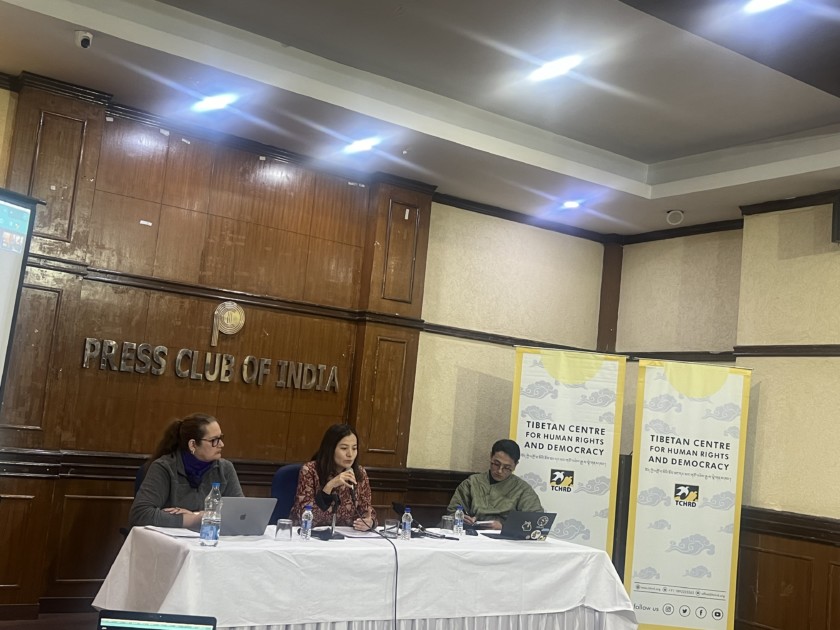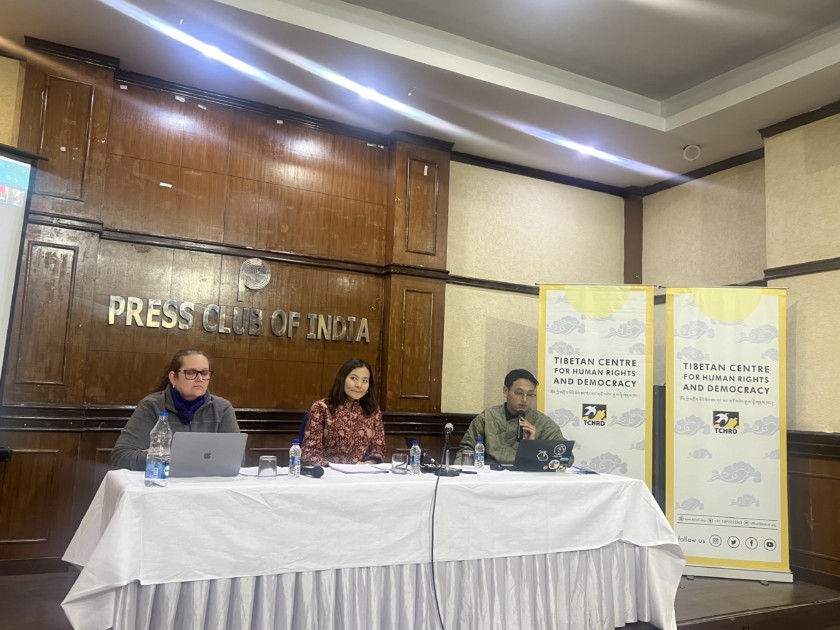Much has been reported about the experiences of communities targeted by the Chinese Communist Party’s (CCP) transnational repression campaign, but little is known about the Tibetan experience. Until now, transnational repression against Tibetans has remained an under-acknowledged phenomenon – primarily due to its persistence, which seems to have normalised it in the lives of the victims.
The report titled ‘Chinese Transnational Repression of Tibetan Diaspora Communities’ released today by the Tibetan Centre for Human Rights and Democracy (TCHRD) is the first report of its kind to focus on the global transnational repression of Tibetans in a substantial manner.

Transnational repression has been defined as the phenomenon whereby “governments reach across national borders to silence dissent among their diaspora and exile communities.” It is typically committed by authoritarian states that routinely violate the fundamental rights of certain segments of their population in an attempt to keep them under tight government control.

In many cases, to control the actions of exiled Tibetans, Chinese authorities weaponise their relatives in Tibet by harming, threatening, or otherwise manipulating them. The looming threat resulting from ubiquitous surveillance also fosters a constant feeling of unease that spreads fear and disempowers exiled communities. Knowing that spies are planted among their members undermines the trust essential to the survival of diaspora networks. Transnational repression poses increasing threats to Tibetan diaspora communities and, thereby, to the future of the Tibetan freedom movement.
The report uncovers various forms and trends of transnational repression experienced by exiled Tibetans worldwide include:
● Chinese authorities are seeking to further sever connections between Tibetans in exile and their relatives in Tibet by making communication technically impossible or dangerous.
● Chinese authorities are spying on exiled Tibetans to collect personal information. This information can then be used to infiltrate and sabotage diaspora networks (including through disinformation campaigns), and/or as a basis for blackmail. The Covid-19 pandemic has been instrumentalized to this end.
● Chinese authorities in Tibet are seeking to control the behaviour of exiled Tibetans abroad (through direct intimidation and/or threats to their relatives), mostly coercing them into renouncing their activism.
● Chinese authorities are seeking to undermine the livelihoods of exiled Tibetans, both in terms of material subsistence (e.g. forbidding money transfers from their relatives) and in terms of mental health (e.g. being told to stop attending cultural events such as teachings by the Dalai Lama).

The CCP is executing an all-encompassing strategy to undermine Tibetan identity in all its components, including language and religion. In this respect, transnational repression can be interpreted as a form of “sharp power,” seeking to “pierce, penetrate, or perforate” targeted countries’ political and cultural environments. The goal is to undermine the legitimacy of overseas advocacy organisations and hinder their functionality by systematically employing economic, political or other devious means to dismantle their solidarity networks, perceived as threats to state authority, by often falsely framing them in front of the international community as enemies of the CCP intending to mislead the international community and consequently garner international support for CCP policies.
“The international community must provide concrete protections to specific populations, including Tibetan diaspora communities that experience persecution and are targeted for transnational repression,” said Ms Tenzin Dawa, executive director of TCHRD.
“We appeal to all democratic governments to protect human rights on their soil, through their own domestic agencies as well as creating awareness about transnational repression among various law enforcement agencies. Concrete actions such as targeted sanctions and travel bans must be imposed on individuals or government officials responsible for perpetrating acts of transnational repression.”
Click here to read the full special report.

